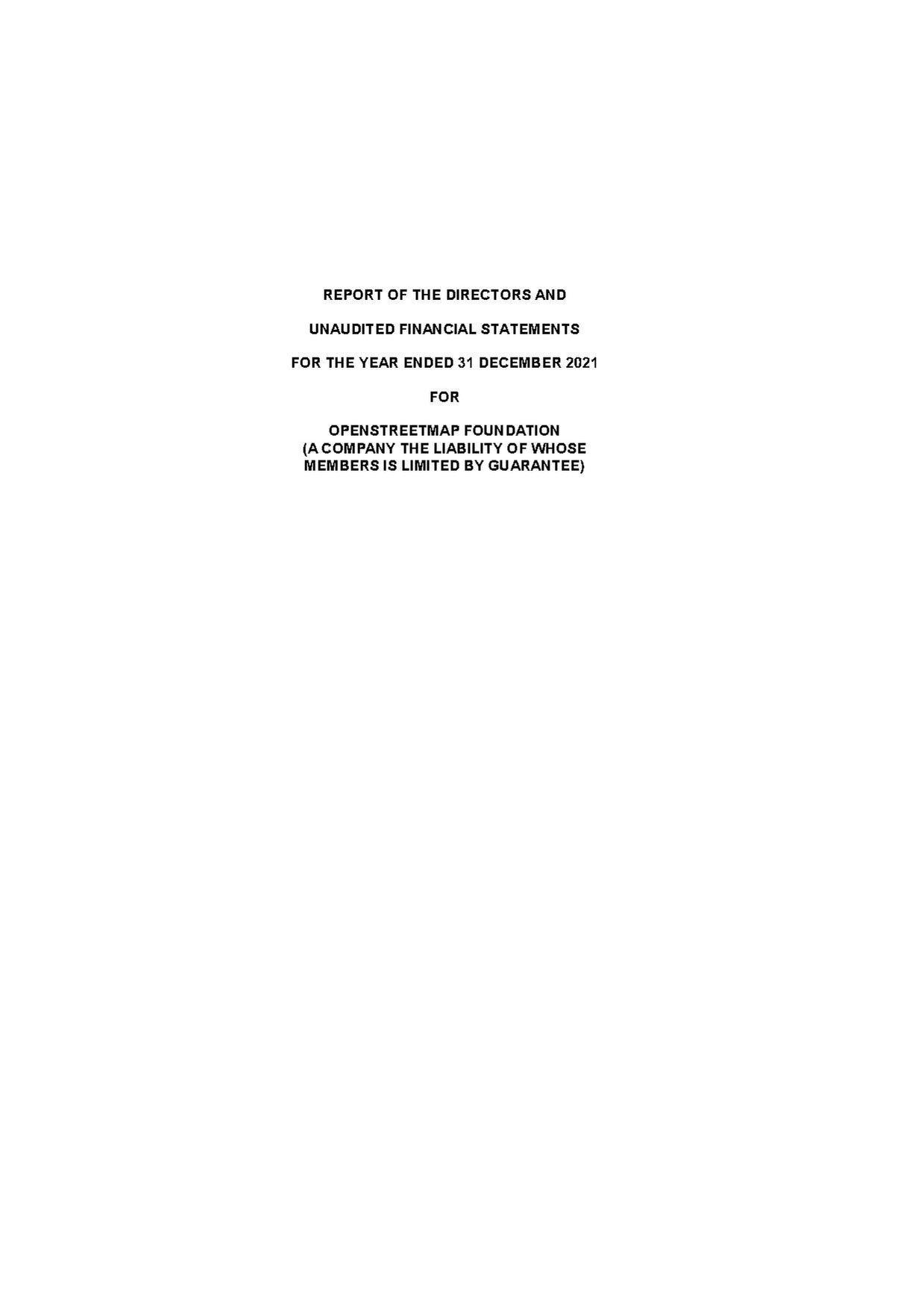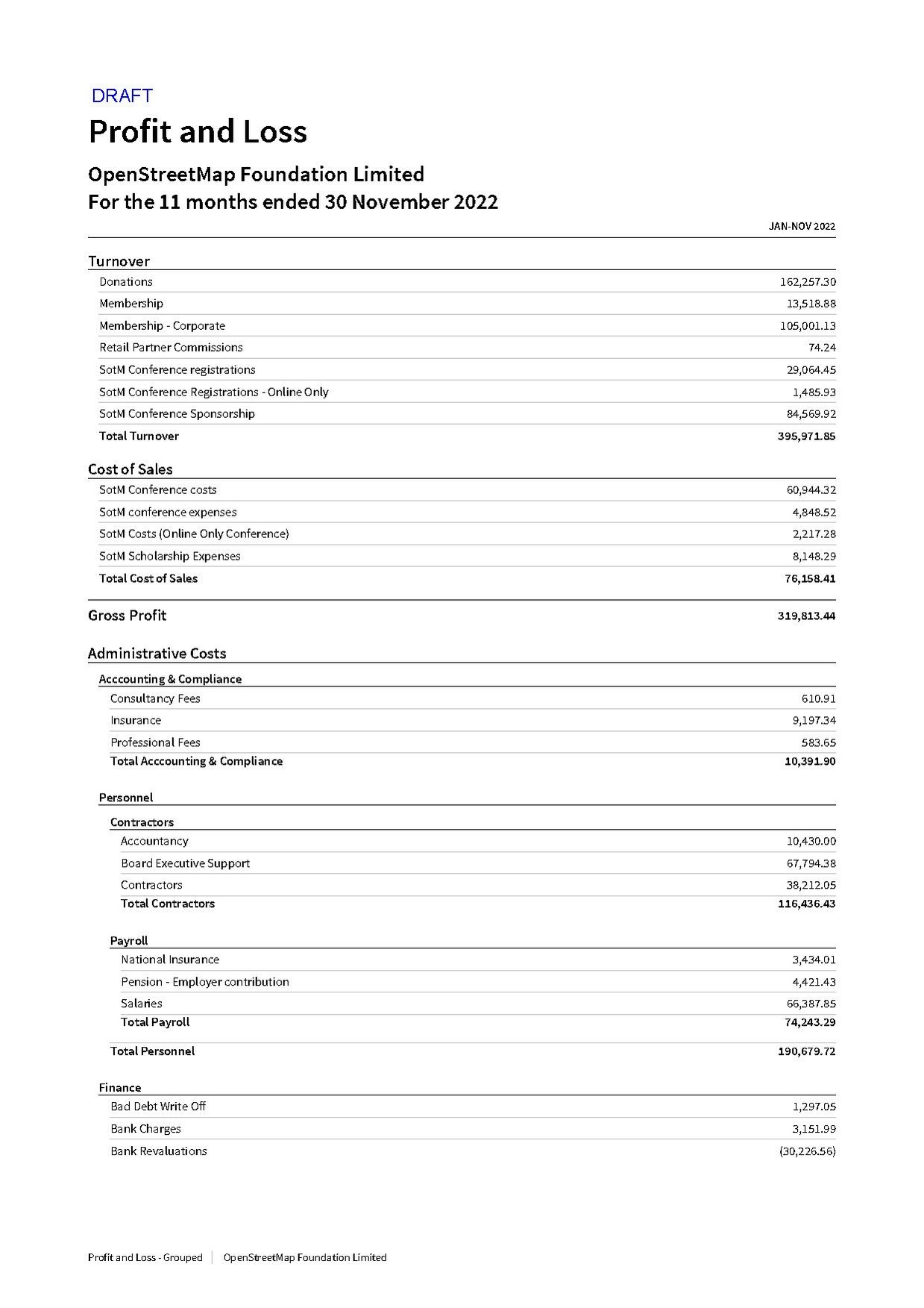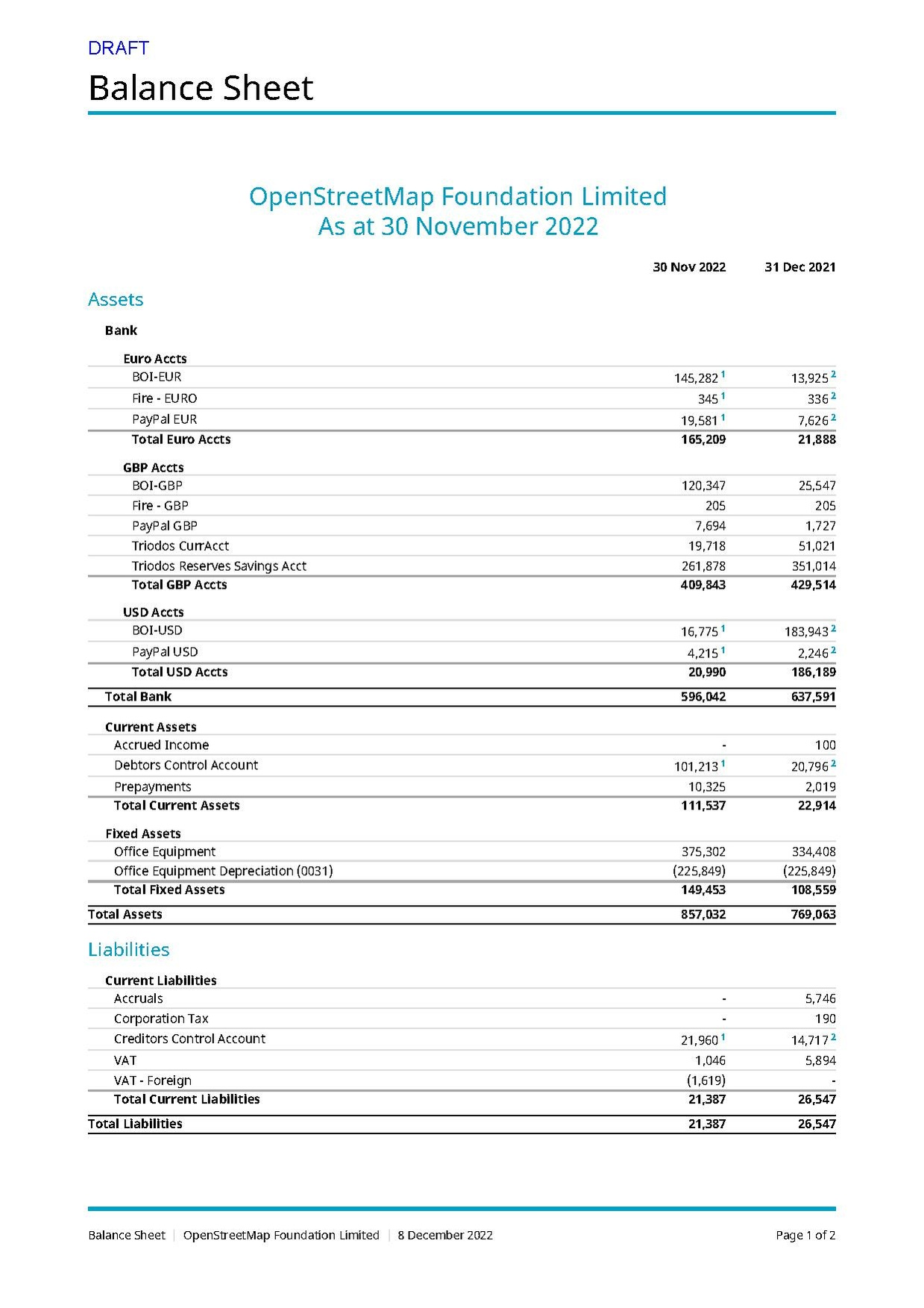Annual General Meetings/2022/Treasurer’s report
Detailed Reports
The fiscal year we legally must report on is 2021, i.e. from 01 Jan 2021 to 31 Dec 2021. See  .
.
For those, like me, who think more in hardware and people: Please note that hardware purchases are usually written off over 4 years, i.e. you do not directly see the money the OWG spend on hardware but the depreciation, which is one quarter of the decisions of the last four years. Most of the expenses on people are in administrative cost. Cost of sales is rather the money spent on the virtual SotM 2021.
There is also the preliminary  and the preliminary
and the preliminary  . There is not only economic activity from December missing, but also outstanding payments.
. There is not only economic activity from December missing, but also outstanding payments.
A Very Rough Budget
Figures are rounded to the ₤ 50,000 because I have no idea how badly inflation will hurt us the next year.
Our baseline is to still run the servers. We have spent in 2022 about ₤ 150,000 on operations cost. We also are very happy with the administrative support, accounting and our first employee, adding another ₤ 200,000 for 2022 and prospectively per annum.
Investments that make sense but would be cut in a contingency had amounted in 2022 to another ₤ 100,000, see below. This can and should grow as fast as we find the right spots to invest in the future of OpenStreetMap.
The SotM will most likely conclude with a surplus of ₤ 50,000. We do not know yet because work on taxes is still ongoing, see below.
Corporate memberships have been our main source of income, but it is not enough to sustain our actual spending level. We plan to raise that income, see the fundraising report. By contrast, the salaries have been paid so far from ringfenced donations for exactly that purpose, so we have multiple years of reserve.
Significant events
Most of the events presented in the following are signs that we are growing, and doing so in a healthy way.
The OSMF becomes an employer
We have hired our first employee, our Senior Site Reliability Engineer. Grant Slater is a long time and well known OpenStreetMap contributor, and will be able to focus and need work on core infrastructure. With an employee we commit to ongoing expenses. The Personnel Commitee Report has more details.
Additionally, we continue to have two running contracts for administrative work. We are also now paying for the development of iD, and multiple working groups have made investments to improve the tooling: the EWG has commissioned a study about the data model, the CWG got the CiviCRM overhauled, and the OWG kept the fleet of servers up to date. In other words: we get good value from letting the working groups spend money where they see fit it.
Being International
SotM has created more than 100 hours of overhead work, because we hit the threshold for declaring and paying VAT to Italy. This is volunteer work on top of also significant work of our accountant. This stems mostly from producing required documents, making sense of forms, getting access to online portals, or rather finding people who have access rights to the online portals.
In other words: this will start to accompany most future SotMs if we continue to grow. And, we are an intrinsically international project dealing with national authorities.
We also have hit the threshold for British VAT, again partly because international cash flow counts different than UK internal cash flow.
Also a consequence of being international are other things keeping the treasurer, accountant and part of the Board busy: some of the procedures to prevent fraudulous debits from third parties do not run smoothly if, like in our case, the company's seat is in a different country than the bank accounts. Again, we are very happy with our bank because most other banks raise flags on quite vital things like having members across the world - the issue that had us end business with a former bank. So this is expected to grow as we grow and stay international.
International issues or the sheer fact that we have changed the treasurer has also created a lot of work: while most corporate members place an order and pay, some corporate members have needed 40 or more mails to sort out detail issues. It is expected that this will also grow as we grow, and more administrative support is needed, because volunteer time does not scale.